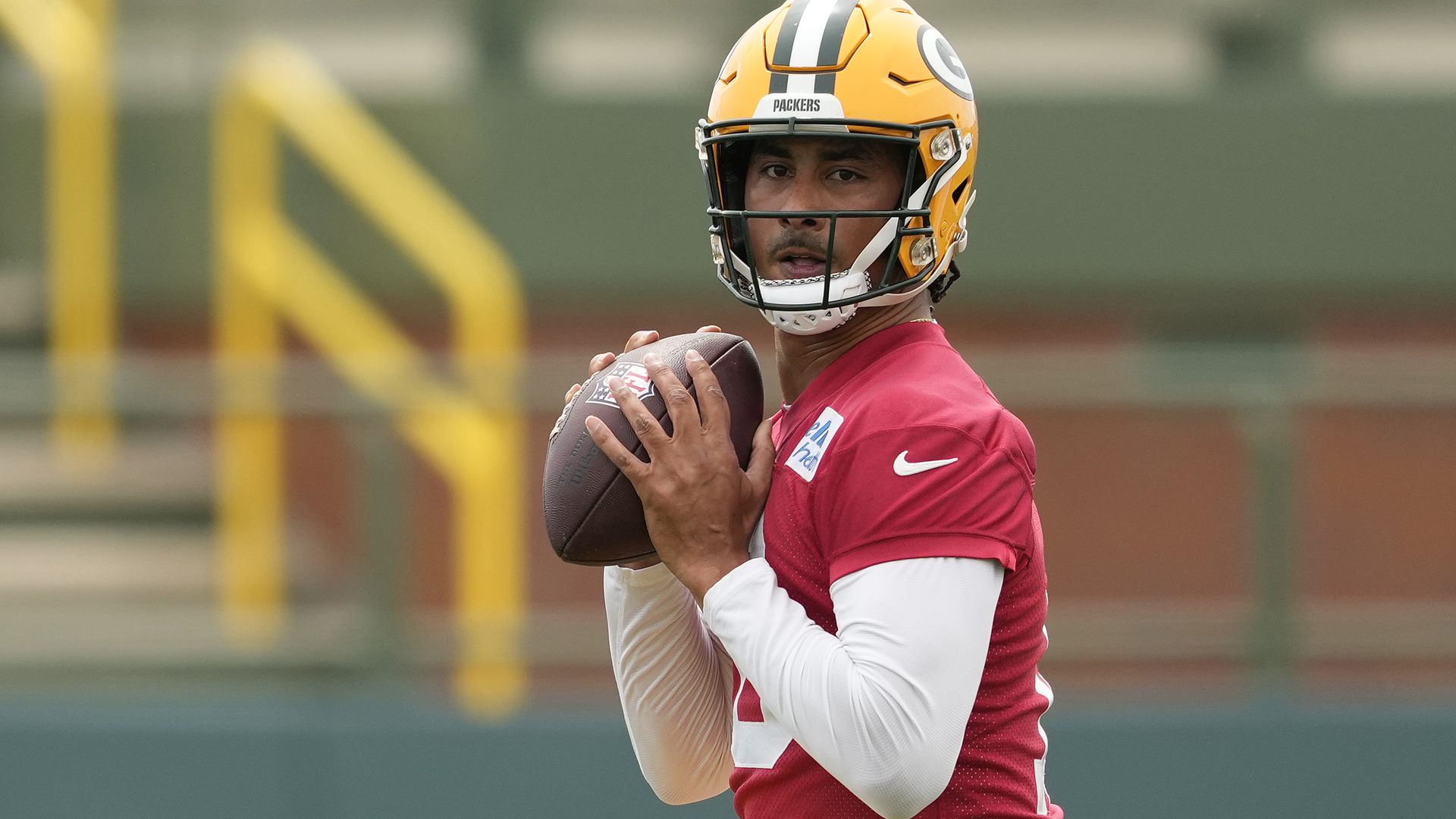
HOW THE NFL’S SUNDAY TICKET LAWSUIT COULD IMPACT JORDAN LOVE’S EXTENSION
On Thursday, the NFL was ordered by a jury to pay north of $4 billion in damages to commercial and residential parties for what is being considered antitrust violations involving the league’s NFL Sunday Ticket package. Due to the fact that this was a federal antitrust lawsuit, damages can be tripled, meaning that the final number could be above $12 billion.
How impactful is this? For perspective, the league’s entire revenue stream in 2023 was $19 billion, meaning that it would be a significant haircut for the NFL and its clubs. On top of that, the NFL Sunday Ticket package is currently paying the league $2 billion a year, roughly half of what FOX and CBS pay for their two Sunday afternoon slates. That revenue stream could vanish overnight.
Obviously, the NFL is going to appeal the decision. Below is the league’s statement on the verdict, which came shortly after the initial news broke on Thursday, via ProFootballTalk:
“We are disappointed with the jury’s verdict today in the NFL Sunday Ticket class action lawsuit. We continue to believe that our media distribution strategy, which features all NFL games broadcast on free over-the-air television in the markets of the participating teams and national distribution of our most popular games, supplemented by many additional choices including RedZone, Sunday Ticket and NFL+, is by far the most fan friendly distribution model in all of sports and entertainment. We will certainly contest this decision as we believe that the class action claims in this case are baseless and without merit. We thank the jury for their time and service and for the guidance and oversight from Judge Gutierrez throughout the trial.”
If the league’s appeal, which will be filed on July 31st at the earliest, fails, though, that has significant ramifications around the league. The NFL’s collective bargaining agreement sets clubs’ salary cap based on how much the league as a whole makes, but it is based on the presumption that the number is always going to continue to rise. As we saw during the pandemic, when revenue dropped and therefore so did the salary cap, even the most conservative teams — like the Green Bay Packers — had to mortgage their future to keep star players on their roster during the cap squeeze if they wanted to compete in the short term.
The NFL, in 2024, is just now getting back to a normal cap schedule. So what happens if one of the league’s most profitable sources of money, its collective out-of-market NFL Sunday Ticket package, is turned off forever after the NFL has to essentially pay a full year’s worth of revenue in damages?
NFL contracts won’t scale to the salary cap’s percentage, as we saw during the pandemic. If quarterback Jordan Love signs a $60 million per year contract and the salary cap drops down to half of what it previously was, he’s still owed that $60 million per year. That presents a problem.
If the NFL loses its appeal, one of two things will happen:
- The league’s salary cap will be severely reduced to match the NFL’s payment of the lawsuit and its lost revenue stream. This is how a cap squeeze happens.
- The league will get rid of the salary cap altogether, something Dallas Cowboys owner Jerry Jones has already proposed in public following questions about whether teams will now be selling their own out-of-market game packages as clubs separate from the league. This would almost certainly change the NFL as we know it.
With the Dallas Cowboys seemingly uninterested in extending Dak Prescott and the Miami Dolphins unwilling to pay Tua Tagovailoa a “market value” contract, the Packers have now found themselves in a frustrating position: The first team scheduled to hand out a major quarterback extension following the jury’s decision on the NFL Sunday Ticket lawsuit.
How can Green Bay pay out Love $55 million per year, the rate that both Trevor Lawrence and Joe Burrow are signed at, when they have no idea if the salary cap will significantly regress over the next few seasons or not? On the other hand, if the team believes that the salary cap is going to be done away with completely, being a first-mover on quarterback contracts could provide the club with a lot of long-term value, as it wouldn’t be surprising to see salaries climb in an unrestricted market.
Just a few weeks ago, the conversations around Love’s extension were simple: Pay the man. Now, with the uncertainty around the entire league as a whole, it’s a much murkier situation. Previously, the Packers’ brass stated that the team wanted to get an extension done with Love before training camp. With the recent news, though, it shouldn’t shock anyone for Green Bay to now take a more wait-and-see approach to major financial commitments.
2024-06-27T23:02:11Z dg43tfdfdgfd
